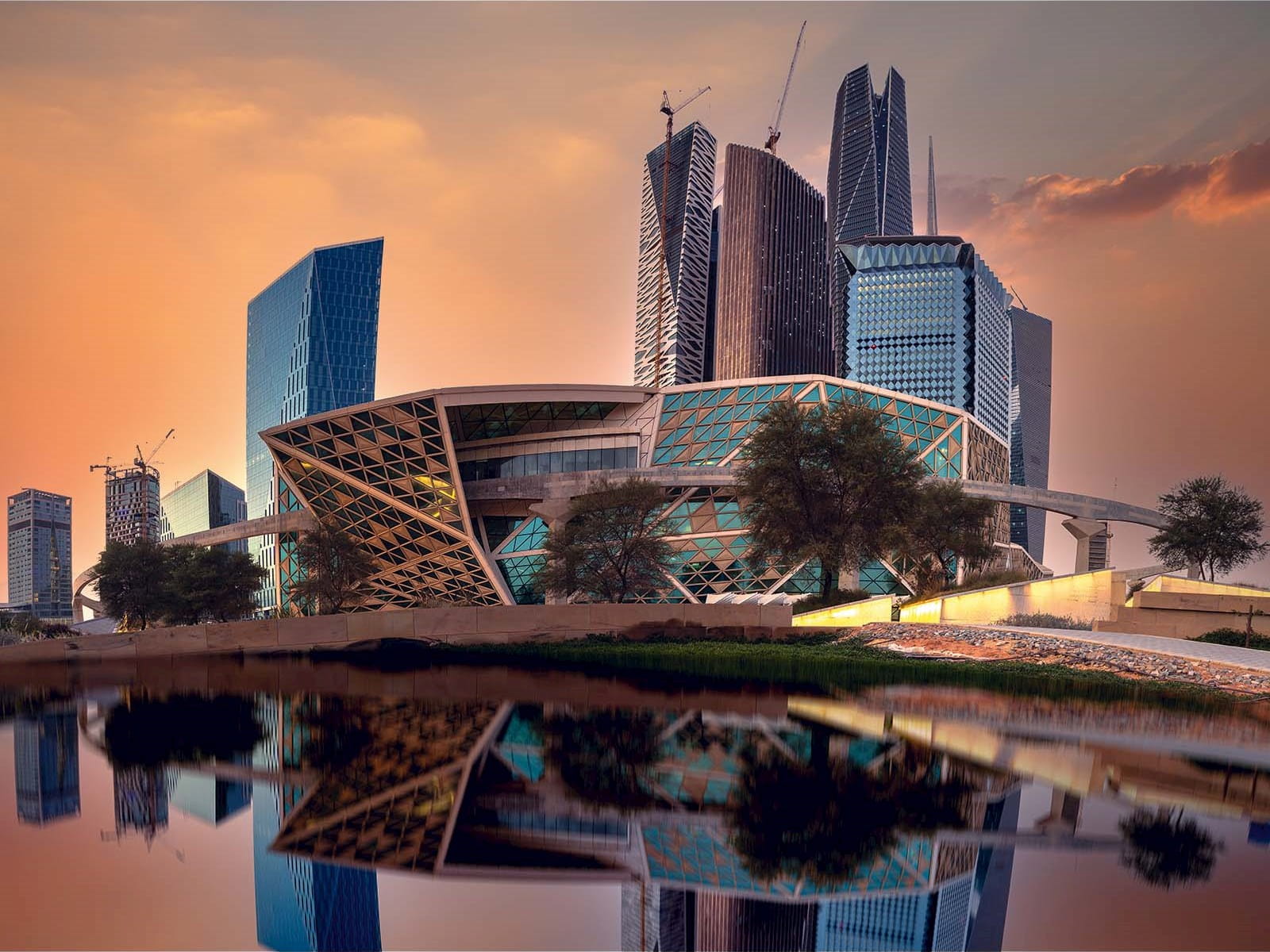Private equity, which had been building its reputation in the Middle East, suffered a major setback with the collapse of Abraaj in 2018. But, as Andy Thomson reports, M&A is bearing up and IPOs in the region are leading the way.
Oil prices may have dropped from the record highs of March 2022, when Russia’s reinvasion of Ukraine began, but they’re still high and so the Middle East remains pretty bullish when it comes to investment. M&A activity is also strong and the region has seen an uptick in listings.
“The IPO market through 2022 and on into 2023 has been the busiest, hottest of all capital markets globally,” says Andrew Tarbuck, partner and head of capital markets at law firm Al Tamimi. “You’ve seen volatility and a slowdown in Europe and North America, the special purpose acquisition company (SPAC) boom is over and Asia is pretty slow as well. Institutional investor focus has very much been on the Middle East, and particularly Saudi Arabia and the UAE.”
ICAEW’s Middle East office – which opened in 2009 in Dubai and supports 1,700 members, students, governments, regulators and other stakeholders – has found itself at the heart of the IPO boom, helping to build a better understanding of what’s driving it. Adnan Fazli, a member of ICAEW’s Corporate Finance Faculty Middle East Panel who leads the energy, resources and industrials financial advisory team for Deloitte in the Middle East, was moderator of a recent panel discussion about IPOs organised by the faculty: “We had investment bankers, a lawyer and CFOs of a couple of the more recently listed companies, who talked about their experience – what it meant for them, and why this is something that is creating ripples in the market. It enhanced members’ knowledge and provided an opportunity to network.”
So why has the IPO market become the centre of attention? There have been several triggers. In the UAE, one was the relaxation of foreign ownership rules, which dictated that at least 51% of local companies had to be held by local owners. This and other protectionist rules have been removed: Tarbuck describes the latter half of 2021 as “the most prolific period of changes and new laws coming onto the statute books”. One of these changes was allowing book-building as a way of raising capital – the absence of it previously was seen as a significant disincentive for potential issuers.
Interest piqued
Before the IPO boom in the Middle East, many companies in the region were listing overseas – including Network International (NI), a payment processing firm (think of the devices you pay for almost anything on these days) which listed in London in 2019. Many market observers assume NI is a Western company; in fact, it’s based in Dubai.
NI is currently the subject of a £2.1bn bid from a private equity consortium led by CVC Capital and Francisco Partners. Interest in the business is strong, with NI reportedly having rejected numerous previous offers; the latest one is seen as having a better chance of success.
The significant thing about the deal, say local professionals, is that large Middle East firms have not really been seen as natural targets for global private equity firms – most of the deals done to date have been in relation to GREs. Might NI kickstart a new wave of private equity investment into Middle Eastern businesses? Just a theory at this point – but worth keeping an eye on.
There have also been cultural changes. It was only January last year that the UAE moved to a Western-style Saturday/Sunday weekend instead of Friday/Saturday. This means no more ‘lost Fridays’ for the likes of the Dubai Financial Market (DFM) and Abu Dhabi Securities Exchange (ADX).
Top of the lists
“It’s been quite exciting for the Middle East to see the enhancement of capital markets, and the number of entities that are listing is very promising,” says Zubin Chiba, corporate finance leader at PwC in the Middle East (and also a member of the faculty’s Middle East Panel). He points out that Saudi Arabia saw 17 listings in 2022, while there were 11 in the UAE. While Saudi Arabia has had an active IPO market for some time, for the UAE – which had just four listings in 2021 – this is a significant change.
Some IPOs have been subsidiaries of blue-chip government-related entities (GREs), such as the Abu Dhabi National Oil Company (ADNOC). In March, gas processing firm ADNOC Gas listed in a $2.5bn IPO on the ADX, reportedly 50 times oversubscribed. But listings have not been confined to GREs. “Listing economic ‘mainstays’ has built confidence in the equity capital markets and on their coat-tails a number of private companies have begun seriously considering and pursuing IPOs,” says Fazli. He gives two examples in which Deloitte was involved: schools operator Taaleem Education, which raised $204m when it listed on the DFM in November 2022; and money transfer business Al Ansari Exchange, which listed on the DFM in March 2023, raising $210m.

M&A holding up
When it comes to M&A, Chiba cites PwC research showing 632 deals completed across the region last year – consistent with the 624 recorded in 2021. This is significantly up on totals of around 300 for 2018 and 2019 and just over 400 in 2020, he adds. The largest markets by far are the UAE, Saudi Arabia and Egypt, accounting for 89% of total activity in the region.
One of the current hot sectors is hospitality, says Salmaan Khawaja, a corporate finance partner at Grant Thornton in Dubai (and a member of the faculty’s Middle East Panel). “We have a few mandates to find buyers for hotel assets,” he says. “Some are highly leveraged and the owners see this as a good time to exit and settle their debt obligations. In other cases, there are CapEx requirements, but the owners may not have the capacity or appetite to continue to invest and are of the view that, given the current market appetite, a new owner may make the necessary investments to upgrade the asset. Or the asset may simply no longer fit well within the portfolio.”
Other popular sectors cited by market participants include logistics, education, food security, healthcare and renewables. Many businesses have been making moves into technology, including the UAE’s Etisalat, which rebranded itself as e& and repositioned itself as a tech company rather than a telco. However, tech’s popularity as a broad investment category has lessened somewhat says Tarbuck, who is a long-term member of the faculty’s Middle East Panel: “People here caught a bit of a cold – along with the rest of the world last year – when we saw global tech stocks falling and VC investment into tech collapsing.”
Sovereign wealth funds have been significant M&A drivers, Chiba says, “playing a tremendous role supporting the development of regional and national champions to help transform economies”. Sovereign wealth funds and family offices have come to dominate private equity-type investment in the region, ahead of actual private equity funds.
Although there are well-known local PE firms such as Gulf Capital, Investcorp and NBK Capital Partners, market participants say the collapse of Dubai-based Abraaj Capital dealt a heavy blow to the industry’s reputation with investors in the region, from which it has not since fully recovered. “Abraaj was the darling of the PE scene here and what happened made a lot of LPs nervous about investing,” says Tarbuck.
It is also acknowledged, however, that former Abraaj executives unconnected to the firm’s bad practices have moved to other PE firms in the region. “Private equity is relevant and evolving into what appears to be a more appropriate model in the regional market,” says Fazli.
This is why many in the region sound optimistic about private equity’s future prospects – albeit that, even with a restored reputation, such firms have a lot of competition when it comes to providing finance.

Breaking family ties
As the possible bids for Network International show, there is interest in buying Middle Eastern businesses. But many have been in family hands for some time, without ever going through a process of institutionalisation because up to now they may not have had a need for external finance. This is one of the nuances of doing business in the region that private equity firms and others need to be aware of.
“You need to understand the dynamics of family businesses. If you’re trying to buy one, typically expect your due diligence timelines to be slightly longer than, say, private equity-owned businesses just because of the potential differences in the ways the companies are managed. You should expect to spend time understanding the individuals in the family business and what their roles are – as this may not always be immediately obvious,” says Salmaan Khawaja of Grant Thornton.
Expanding the theme to the investment culture in general, Zubin Chiba of PwC says: “I think that economic and cultural nuances are expected in any type of global investing. This is why I foresee that the global expansion of businesses entails learning, growth and development – businesses in the Middle East that go abroad will experience the same.”

